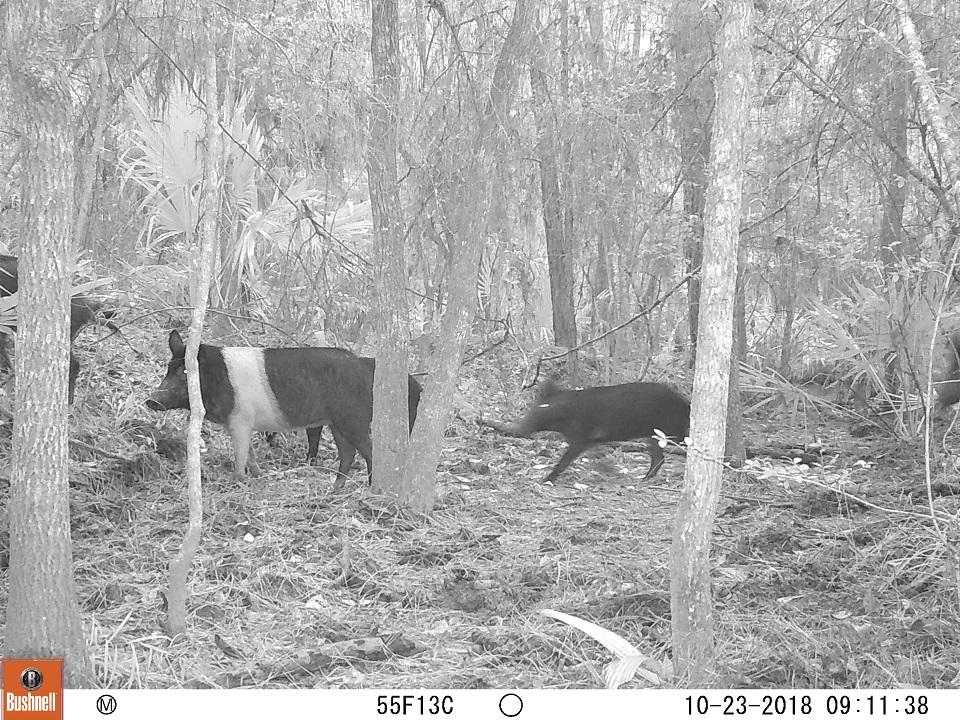
Feral Hogs in Big Thicket National Preserve/NPS.
Superintendent Wayne Prokopetz announced a new public feral hog trapping program at Big Thicket National Preserve. Starting on May 1, 2019, preserve staff will issue free hog trapping permits to interested community members. An information session will be held prior to the start of the trapping season at the Big Thicket National Preserve Visitor Center, located at 6102 FM 420 Road in Kountze, Texas, from 6 to 7 p.m. on Thursday, April 18, 2019. The goal of this public session is to introduce the Feral Hog Trapping program and address questions from the community. All interested parties are encouraged to attend.
“Hog management is an on-going challenge throughout Southeast Texas. We hope that this new trapping program, paired with our existing public hunting opportunities and professional hog trapping efforts, will help diminish the impact this invasive species is having on our environment,” Superintendent Prokopetz explained.
During this inaugural hog trapping season, 25 permits will be issued to trap feral hogs in the preserve, which will be made available on a first-come, first-serve basis by appointment starting May 1st. Each permit holder will be allowed to set up one trap in an approved location in the preserve until the end of the season on January 31, 2020. Appointments to get a feral hog trapping permit may be made by telephone starting May 1, 2019, by contacting the preserve Biologist at (409) 951-6823. All potential hog trappers must possess a valid Texas Hunting License. Data from this first year will better inform future management strategies and potential expansion of the trapping program. Superintendent Prokopetz continued, “We’re excited to offer this expanded recreational opportunity in the preserve.”
Feral hogs are an invasive species descended from domesticated pigs brought to North America by European settlers. Their populations have increased in recent decades, which has resulted in greater competition with native wildlife as well as habitat damage caused by the uprooting of large areas of vegetation. The trapping programs are part of a larger effort to control feral hog populations and provide greater public hunting and trapping opportunities.
In recent years, the preserve has started loaning out hog trapping equipment to park neighbors as a way to help adjacent property owners trap hogs on their land.
The recreational pursuits of hunting, fishing, and trapping have been a part of the preserve since its founding. In the fall of each year Big Thicket National Preserve permits public hunting of white-tail deer, squirrel, rabbit, and other game species. Public trapping of furbearing species in the preserve has also been a long standing tradition since the preserve was established in 1974.
Big Thicket National Preserve is located in Southeast Texas, and consists of nine land units and six water corridors encompassing more than 113,000 acres. The Big Thicket, often referred to as a “biological crossroads,” is a transition zone between four distinct vegetation types – the moist eastern hardwood forest, the southwestern desert, the southeastern swamp, and the central prairies. Species from all of these different vegetation types come together in the thicket, exhibiting a variety of vegetation and wildlife that has received global interest.

 Support Essential Coverage of Essential Places
Support Essential Coverage of Essential Places






